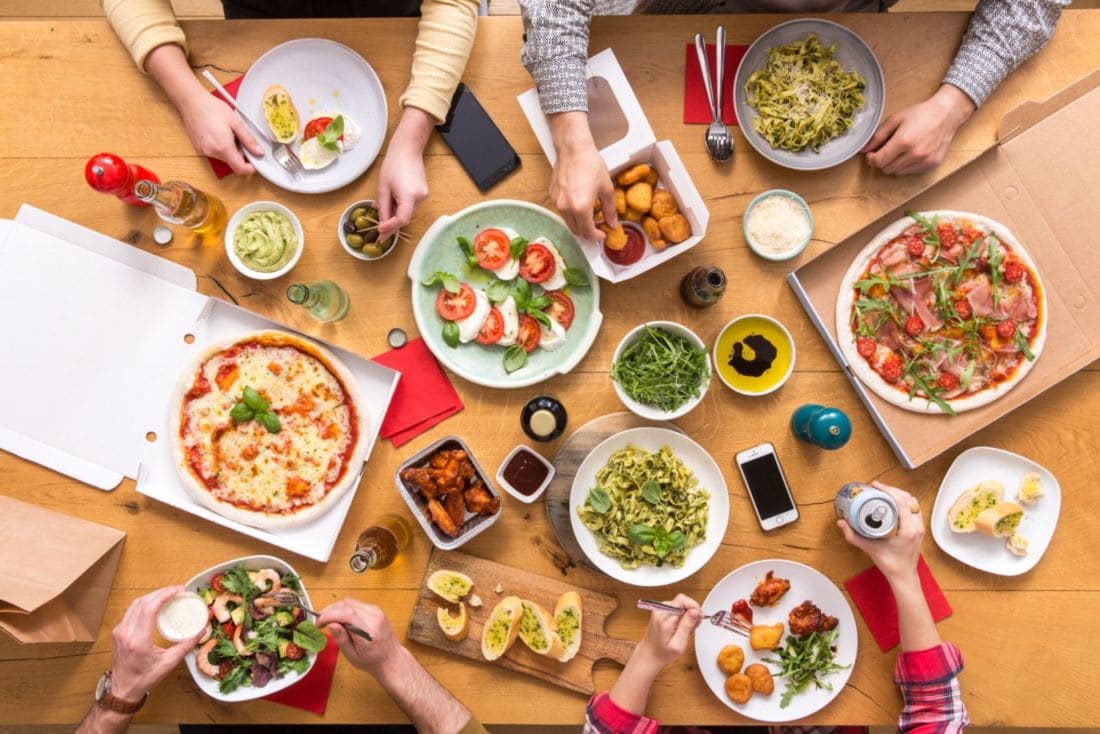Online food deliveries are rapidly growing with €40mln worth of orders placed online last year as the market has been boosted by aggregator platforms which have also seen their business grow.
Online platforms argue that they have seen their business soar, while some 900 restaurants which placed their menu on such platforms have seen their business increase from 25% to 100% within the first month.
Talking to the Financial Mirror CEO of one of the biggest platforms says it handles some 250,000 orders for 861 restaurants monthly as the industry is growing much faster than expected.
Foody CEO Argyris Argyrou, said his company aims to handle more than 50% of all food delivery orders placed, regardless of the method.
Arguing that Cyprus is following a global trend, with online ordering taking off as consumers can now have all options for delivery in one place.
“Younger generations especially, order commodities more frequently online rather than going to the shops or calling up stores.”
Argyrou noted that, according to statistics, 79% of people aged 17-34 have ordered food online at least once.
The Foody CEO argued that online ordering is also catching on as apps offer a set of search filters which make life easier for hungry consumers.
“Imagine carrying in your pocket the menus of 860 restaurants, all within one App. All you have to do is go to the Foody App or visit foody.com.cy, type in your postcode, and then all the restaurants that deliver to your area will appear on your screen”.
He added that there are options for choosy consumers who don’t like tomatoes or parsley in their pork souvlaki pita. “They can simply tick it off”.
Founded in 2015 as a start-up company, Foody has grown to be the biggest online aggregator for the takeaway industry, attracting a major investor and one of the biggest players in online ordering Delivery Hero.
Based in Germany, Delivery Hero boasts being the largest food network in the world with 310,000+ restaurant partners in over 40 countries.
Argyrou said that while updating their software systems to offer consumers and businesses a better experience, Foody is also planning to enter the delivery market with its own delivery fleet.
He noted that when the company does go ahead with building its fleet, it will opt for low emission vehicles, with a preference to electrical motorcycles, following global trends and the guidelines of its parent company.
“Delivery Hero globally is committed at the highest level to reduce its environmental impact and is committed to becoming a carbon-neutral company.”
This sensitivity is also shared by the Cyprus team, he argued, noting that their offices are almost fully paperless and that they reuse or recycle almost everything.
Also enjoying their business thriving are local competitors Deliveryman who have seen demand for ordering online growing at pace.
Prompted by an increase in demand for delivery services in general, Deliveryman has already included kiosks in their platform, and are considering adding supermarkets.
Talking to the Financial Mirror, Michalis Tyrimos, chief strategy officer and director of the product arm of Digital Tree, which is in charge of Deliveryman, said consumers do not only order their lunch online but also their morning or afternoon coffee.
€3 mln orders a month
Tyrimos said Deliveryman estimates that a minimum of €3,000,000 worth of orders is being placed online every month in the Cyprus food and coffee online market.
“According to Forbes, the online food/coffee ordering market will be worth $200 bln globally by 2025. Just 5-6 years ago, the same market was worth $100 mln – that’s roughly a 2000fold increase within 10 years.”
Despite Deliveryman being around for just under a year, they have succeeded in bringing on board more than 400 restaurants while growing rapidly.
“In 2020 we are expecting to surpass 800 restaurants. We have a website (www.deliveryman.com.cy) and native mobile apps for Android”.
He argued online platforms offer consumers a better ordering experience as they do not have to wait for their call to be picked up by a busy operator.
“Online ordering, as a process, is more efficient for restaurants, more convenient for users, and faster for both the customer and businesses,” Tyrimos said.
Restaurants receive the order via a printer or directly on their POS system. As a result, restaurants can receive more orders in a shorter period with less or no mistakes.
Asked what’s in it for the businesses, Tyrimos answered with a single word: Customers. He explained 95% of restaurants have their delivery fleet, with platforms like Deliveryman acting as aggregators.
“Restaurants that would have to promote their business to attract customers, now receive orders and exposure via our platform as the userbase is already in place.”
Tyrimos said future plans may include expanding into grocery deliveries but for now, Deliveryman is concentrating on remaining the second-largest player in the market, while building up their share.
“Deliveryman offers a lower commission fee to the restaurants than our competitors and other freebies, including exposure via our media channels and free listings on ergodotisi.com – among other things.”
In a competitive market, both online ordering platforms have increased their staff significantly, with Foody employing some 50 people, while Deliveryman aims to build a team of 20 within 2020.
Not to mention the number of businesses expanding the delivery services with boots on the ground.










